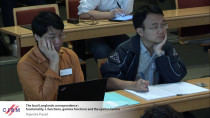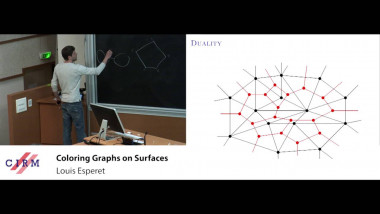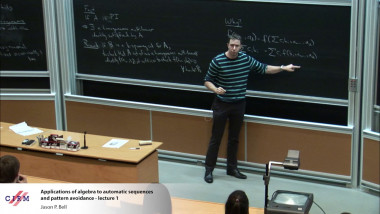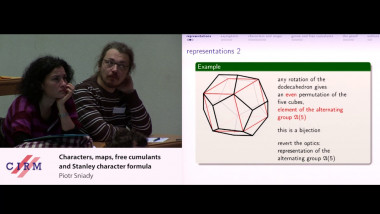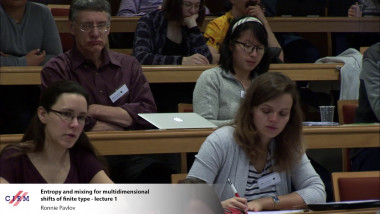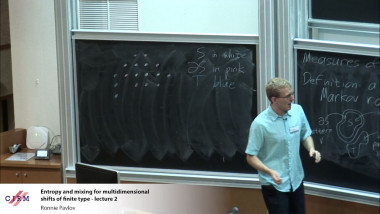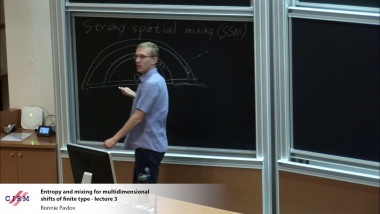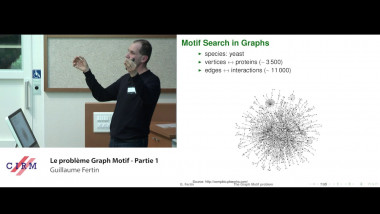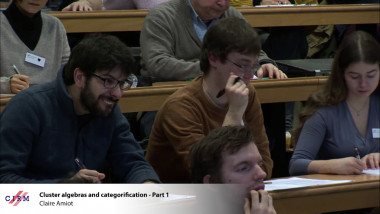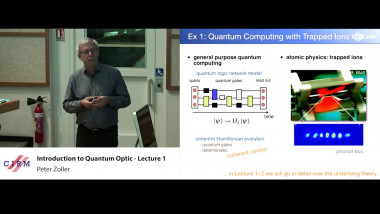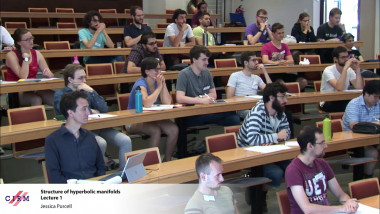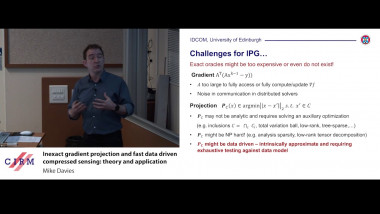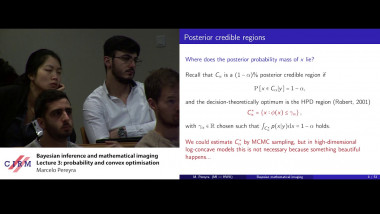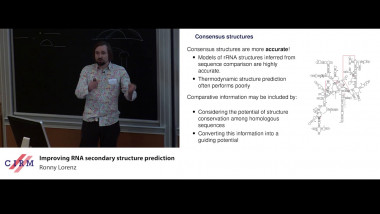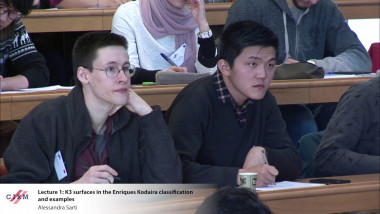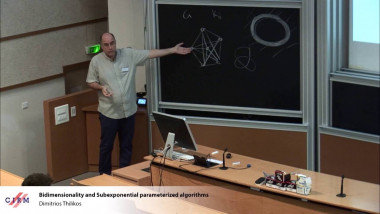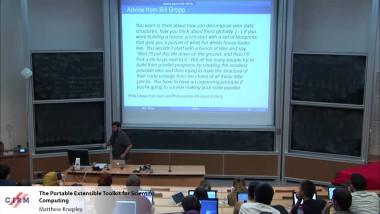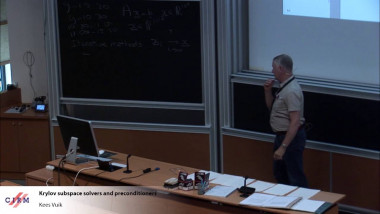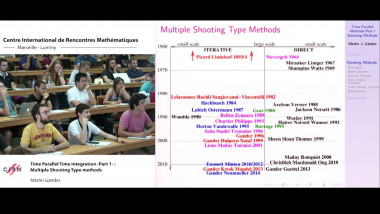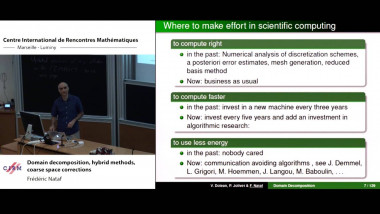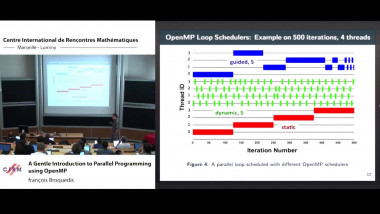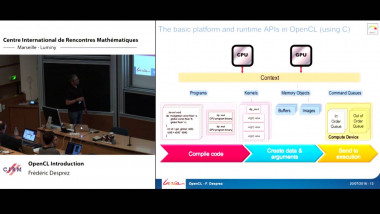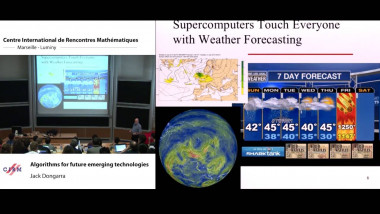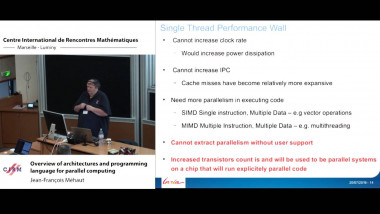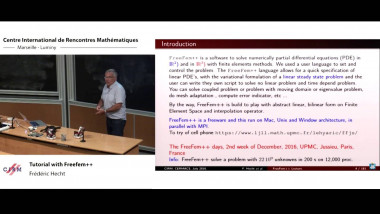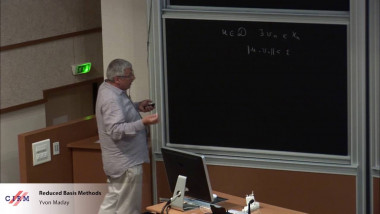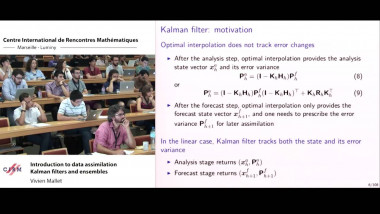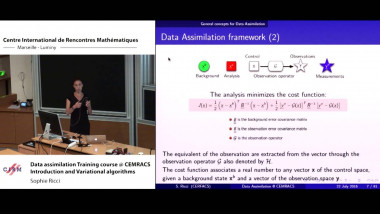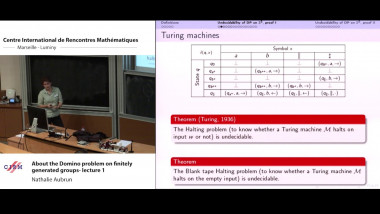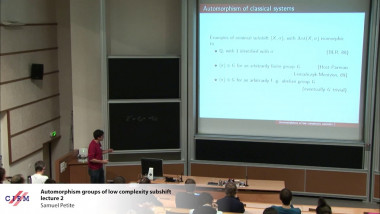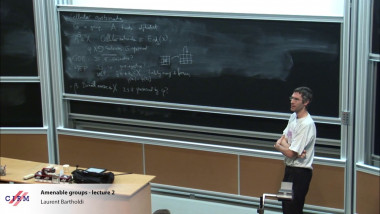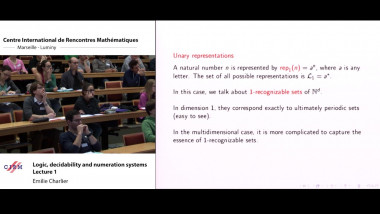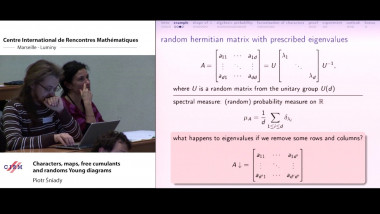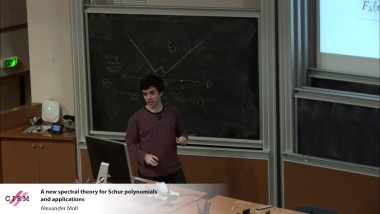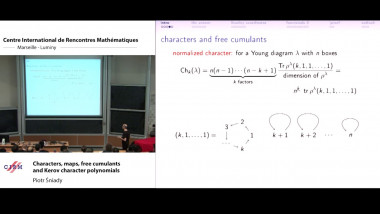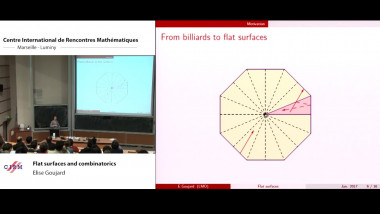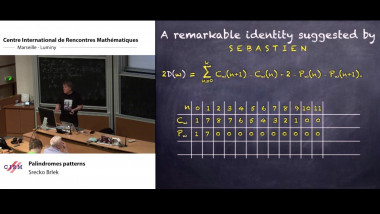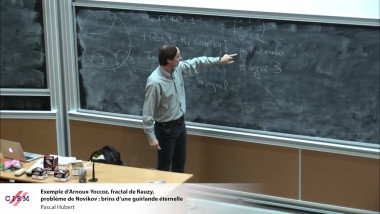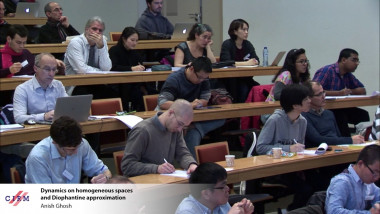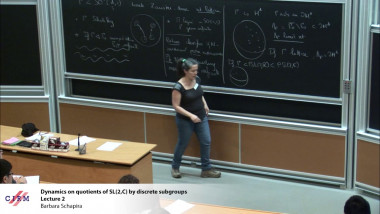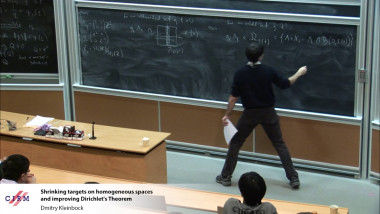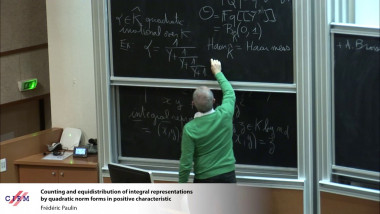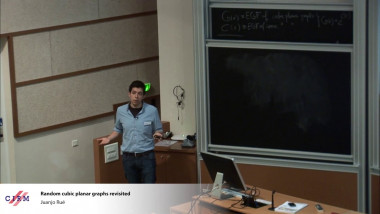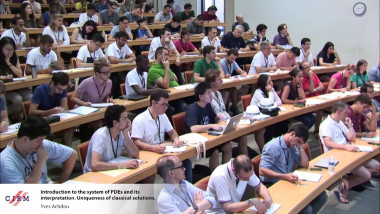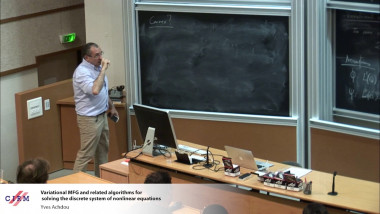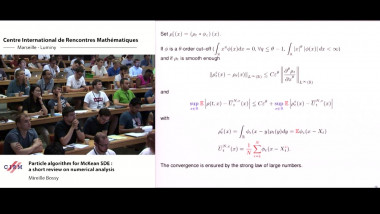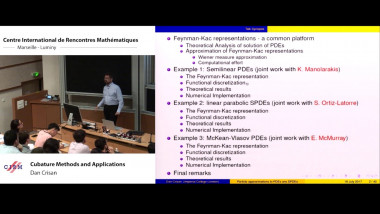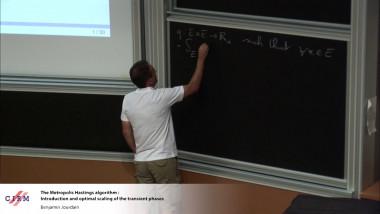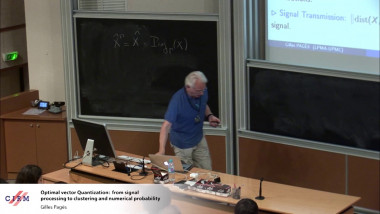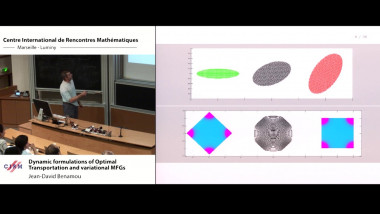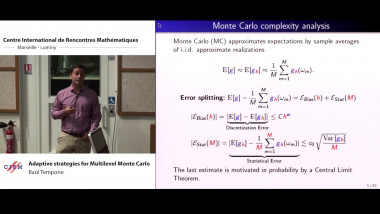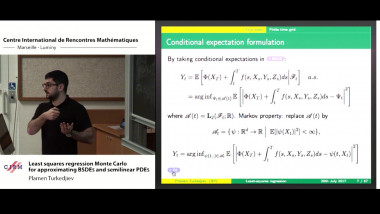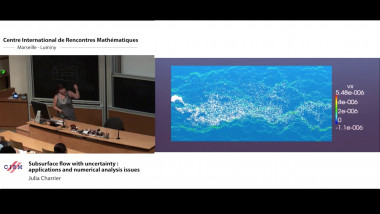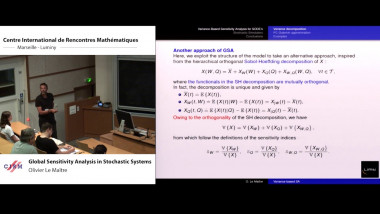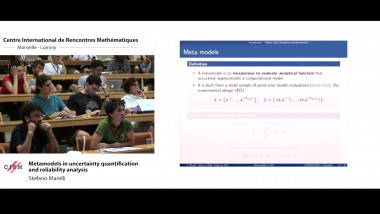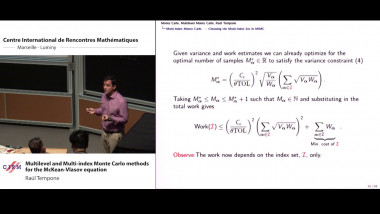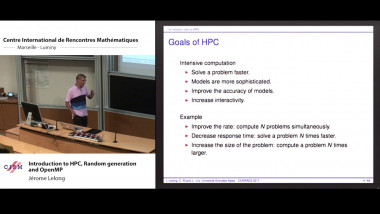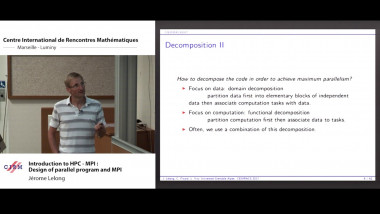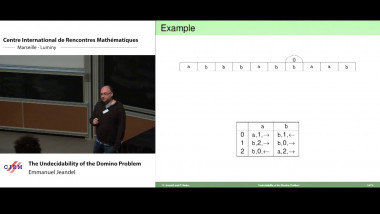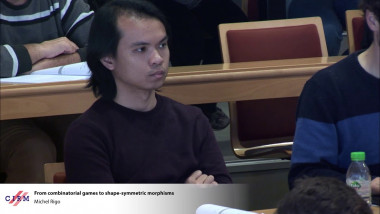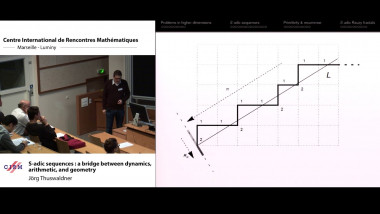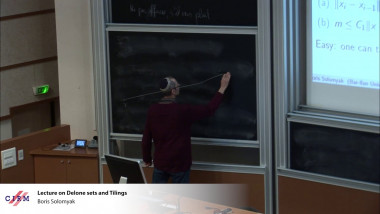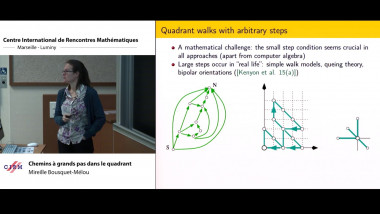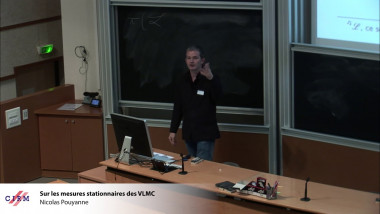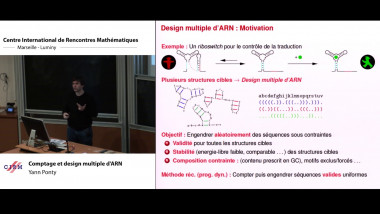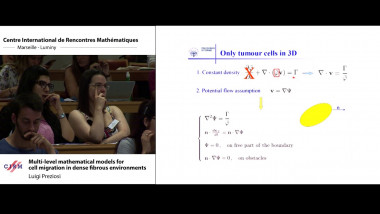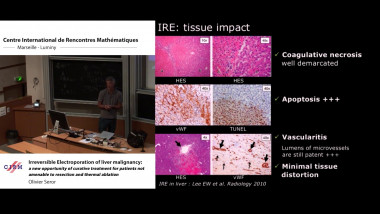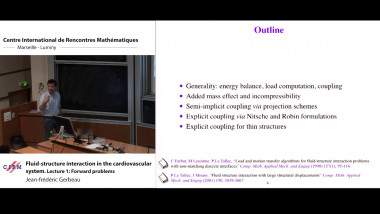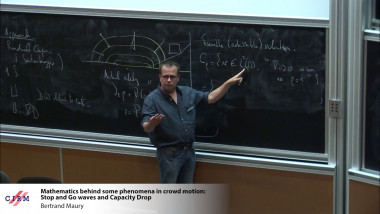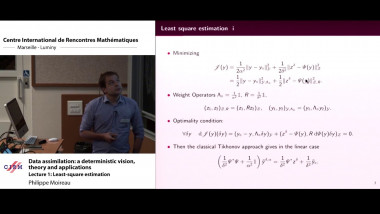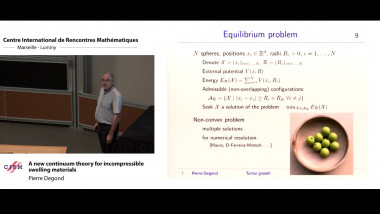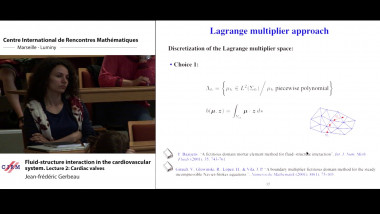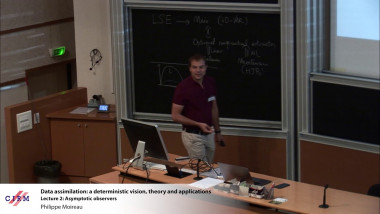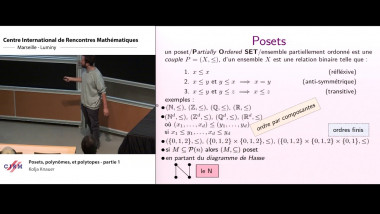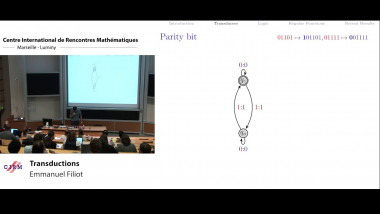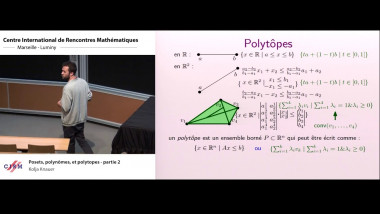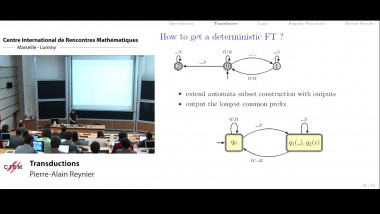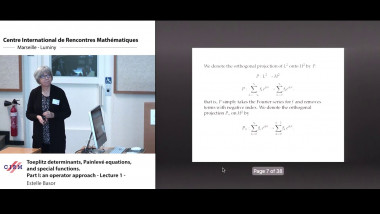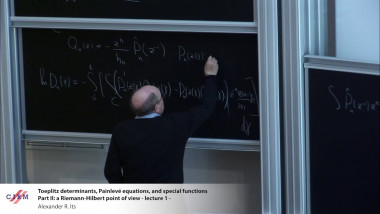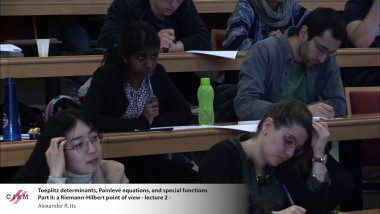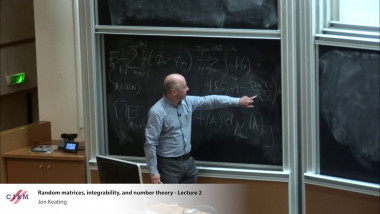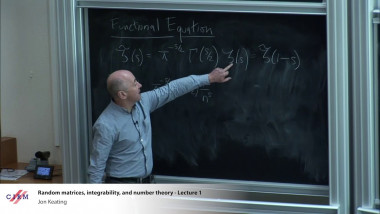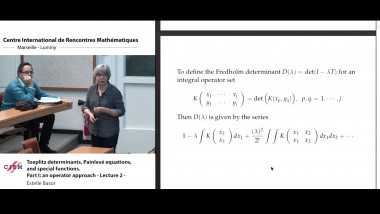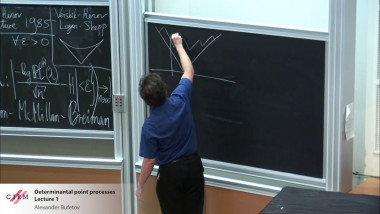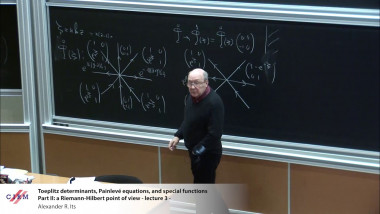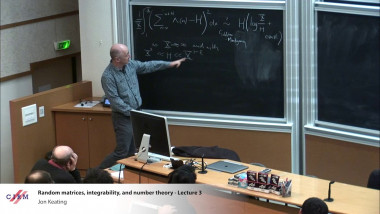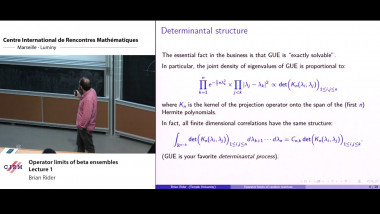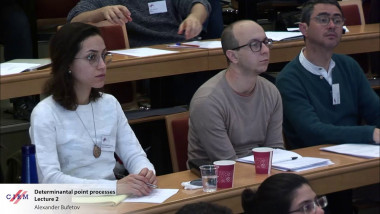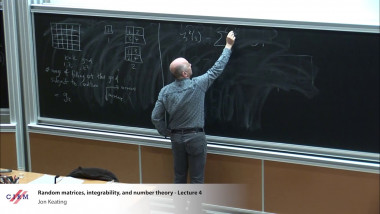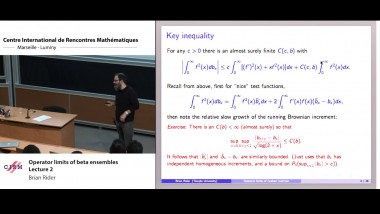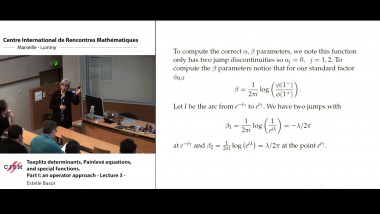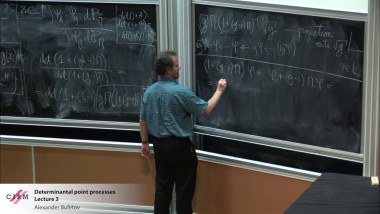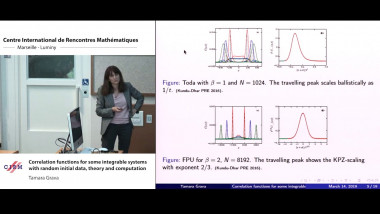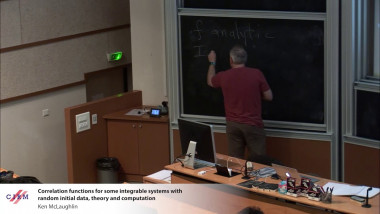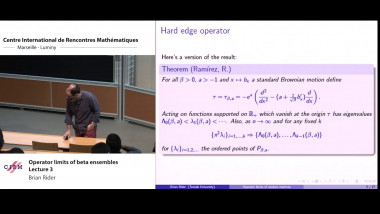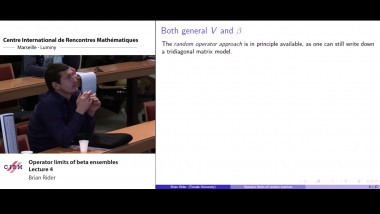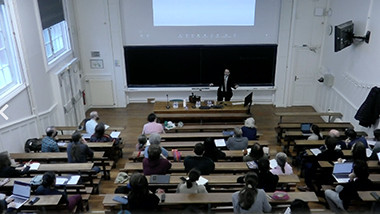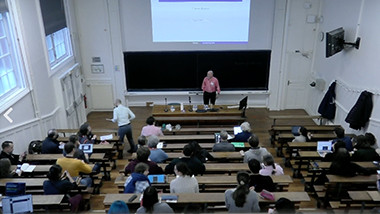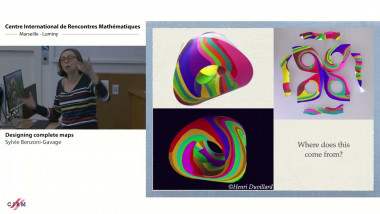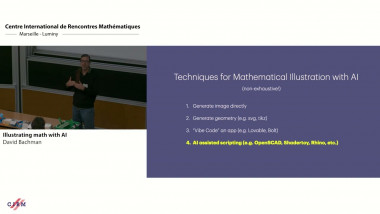Global sensitivity analysis in stochastic systems
Apparaît également dans la collection : CEMRACS - Summer school: Numerical methods for stochastic models: control, uncertainty quantification, mean-field / CEMRACS - École d'été : Méthodes numériques pour équations stochastiques : contrôle, incertitude, champ moyen
Stochastic models are used in many scientific fields, including mechanics, physics, life sciences, queues and social-network studies, chemistry. Stochastic modeling is necessary when deterministic ones cannot capture features of the dynamics, for instance, to represent effects of unresolved small-scale fluctuations, or when systems are subjected to important inherent noise. Often, stochastic models are not completely known and involve some calibrated parameters that should be considered as uncertain. In this case, it is critical to assess the impact of the uncertain model parameters on the stochastic model predictions. This is usually achieved by performing a sensitivity analysis (SA) which characterizes changes in a model output when the uncertain parameters are varied. In the case of a stochastic model, one classically applies the SA to statistical moments of the prediction, estimating, for instance, the derivatives with respect to the uncertain parameters of the output mean and variance. In this presentation, we introduce new approaches of SA in a stochastic system based on variance decomposition methods (ANOVA, Sobol). Compared to previous methods, our SA methods are global, with respect to both the parameters and stochasticity, and decompose the variance into stochastic, parametric and mixed contributions. We consider first the case of uncertain Stochastic Differential Equations (SDE), that is systems with external noisy forcing and uncertain parameters. A polynomial chaos (PC) analysis with stochastic expansion coefficients is proposed to approximate the SDE solution. We first use a Galerkin formalism to determine the expansion coefficients, leading to a hierarchy of SDEs. Under the mild assumption that the noise and uncertain parameters are independent, the Galerkin formalism naturally separates parametric uncertainty and stochastic forcing dependencies, enabling an orthogonal decomposition of the variance, and consequently identify contributions arising from the uncertainty in parameters, the stochastic forcing, and a coupled term. Non-intrusive approaches are subsequently considered for application to more complex systems hardly amenable to Galerkin projection. We also discuss parallel implementations and application to derived quantity of interest, in particular, a novel sampling strategy for non-smooth quantities of interest but smooth SDE solution. Numerical examples are provided to illustrate the output of the SA and the computational complexity of the method. Second, we consider the case of stochastic simulators governed by a set of reaction channels with stochastic dynamics. Reformulating the system dynamics in terms of independent standardized Poisson processes permits the identification of individual realizations of each reaction channel dynamic and a quantitative characterization of the inherent stochasticity sources. By judiciously exploiting the inherent stochasticity of the system, we can then compute the global sensitivities associated with individual reaction channels, as well as the importance of channel interactions. This approach is subsequently extended to account for the effects of uncertain parameters and we propose dedicated algorithms to perform the Sobols decomposition of the variance into contributions from an arbitrary subset of uncertain parameters and stochastic reaction channels. The algorithms are illustrated in simplified systems, including the birth-death, Schlgl, and Michaelis-Menten models. The sensitivity analysis output is also contrasted with a local derivative-based sensitivity analysis method.











